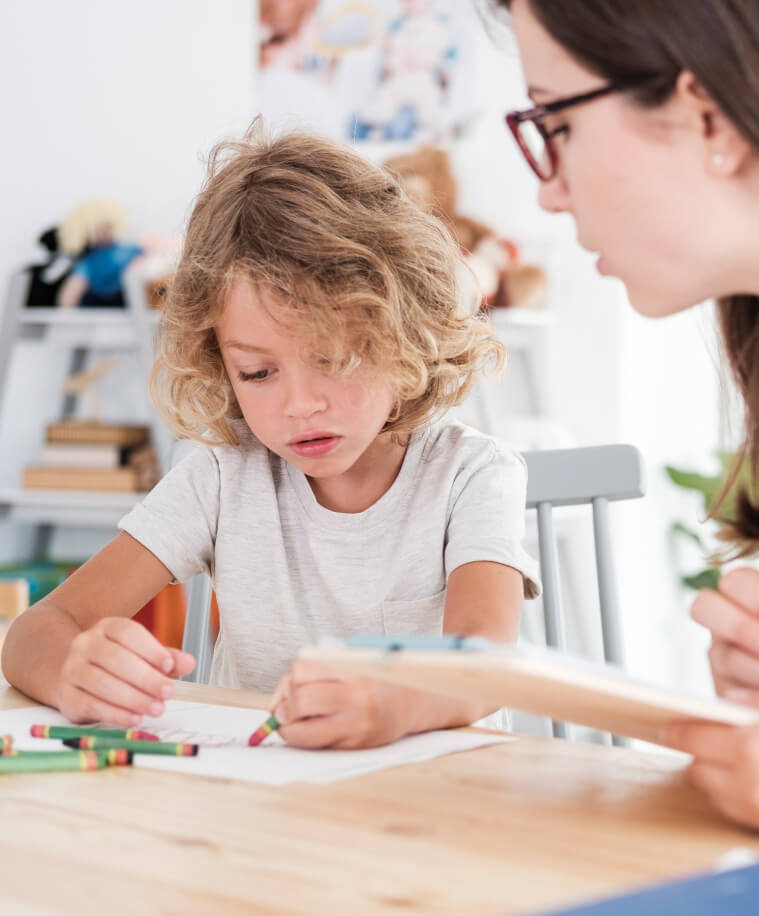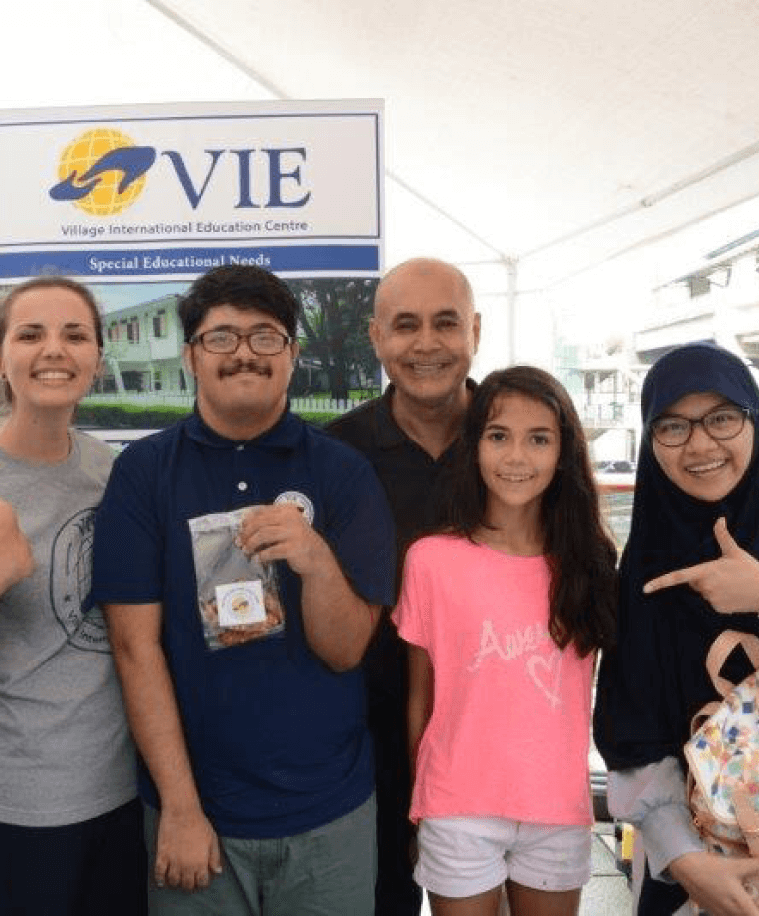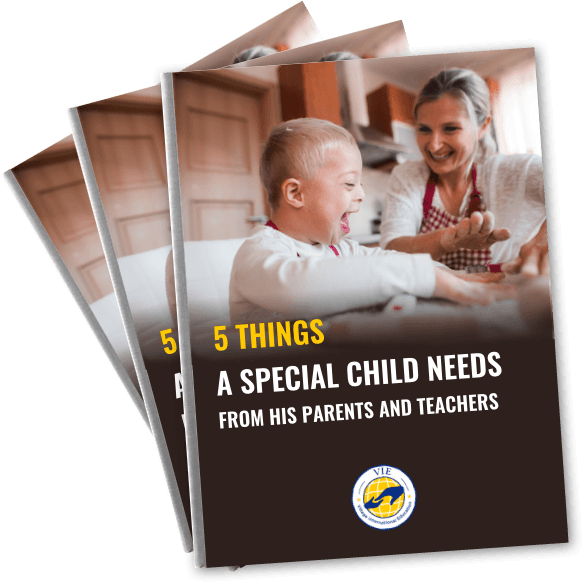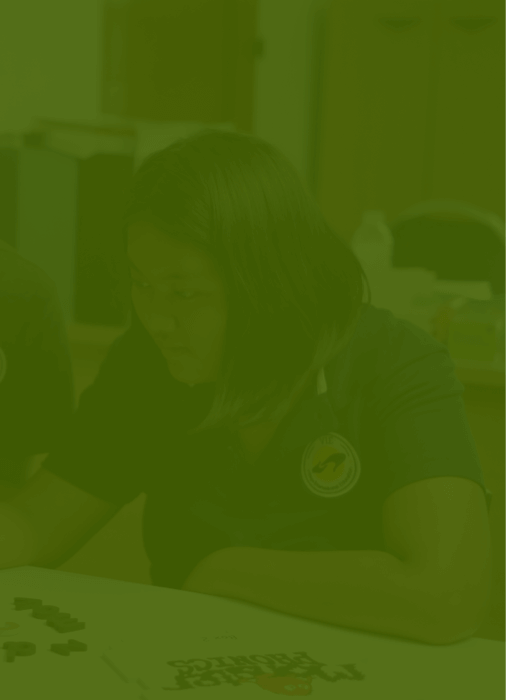Assess
Identify learning problems
Correct
Treat learning problems
Improve
Ensure academic success
Does your child have learning problems?
The assessments help us and you identify the problems your child faces. It also lets you know how you can work with The Village to correct or improve it.
- Have trouble learning new words or understanding sarcasm?
- Need extra support to learn and develop?
- Have specific learning disabilities like dyslexia?
- Need help with improving their cognitive, physical, sensory or motor skills?
- Need an updated review for exam access?

Correct the problems your child has
Get your special child assessed by licensed psychologists and therapists.
Consult with a British Dyslexia specialist to administer and interpret psychological tests for your child.
Assess disabilities. Provide the right solutions to improve or correct the problems faced by your child.

YOUR CHILD IS AT THE CENTRE OF ALL OUR ATTENTION AND CARE.
The Village provides a unique learning environment which puts your child at the centre of all activities.
Multiple specialists from teachers, psychologists, and therapists work together with and around your child.
This all-round support develops your child’s strengths and addresses learning difficulties effectively.

YOUR CHILD IS AT THE CENTRE OF ALL OUR ATTENTION AND CARE.
The Village provides a unique learning environment which puts your child at the centre of all activities.
Multiple specialists from teachers, psychologists, and therapists work together with and around your child.
This all-round support develops your child’s strengths and addresses learning difficulties effectively.

6 Reasons to Choose The Village For Your Special Child
Enhance Your Child’s Creativity
The Village makes teaching and learning creative, relevant and enjoyable for your child.
Help Your Child Learn In Context
Your child learns in an age appropriate context suitable to his or her abilities. This ensures that your child learns and develops to his or her full potential.
Identify Your Child’s Talent
Your child takes part in dance, music and drama to discover what your child is good at.
Encourage Physical Fitness
Enough play and activities to make your child fit.
Explore Community Learning
Participate in activities such as sports days and encourage children to paint walls.
Develop Precious Social Skills
Encourage your child to participate in activities that help him, or her, interact with peers and teachers. Enhance social skills and improve self-confidence.
What will be assessed?
The Village assesses your special child for various learning problems from Educational Psychology, Speech, Dyslexia, Occupational Therapy, and Exam Access. We recommend the right course of action for you.
-
Educational Psychology
Identify and support learning difficulties through these tests.
Educational psychologists also advise schools on curriculum modifications, additional resources and assistant support when exams are required. These assessments by a team of professionals pinpoint your child’s difficulties to support and correct it.
Speech AssessmentWouldn’t it be wonderful if you could identify your child’s difficulties as early as possible?
Be it speech, language, or communications? Allow our Speech and Language therapists to assess these difficulties early on.
This helps the therapists, you and your child, understand the issues. The therapists then develop and deliver programmes of support for your child.
DyslexiaDyslexia is a specific learning difficulty that affects the skills involved in accurate and fluent reading and spelling.
This disability includes difficulties in phonological awareness, verbal memory and verbal processing speed.
It occurs across a range of intellectual abilities and is best thought of as a continuum. It's not a distinct category (there are no clear cut off points). The severity and persistence of dyslexic difficulties is assessed by examining how the individual responds (or has responded) to well-found intervention.
Occupational TherapyServices for children include those with Autism Disorders, Down Syndrome, Cerebral Palsy, Dyspraxia, Global Development Delays, Dyslexia, Sensory Processing Disorders, Attention Deficit Disorders [ADD], Attention Deficit Hyperactive Disorders [ADHS] and many other developmental conditions and delays.
Occupational therapists [OT’s] are qualified to help people with physical, sensory, or cognitive disabilities.
Therapy makes your child as independent as possible in all areas of their lives.
Exam AccessExam Access Assessment [EAA] is relevant for students who have an educational or specialist assessment report previously. Now, you need an updated review for exam access purposes.
This is done by a Specialist EAA Teacher or an Educational Psychologist. Various types of Exam Access Arrangements are available (UK) which are dependent on the student’s needs.
ASSESSING YOUR SPECIAL CHILD IS EASY
CONTACT THE VILLAGE & ARRANGE AN INTERVIEW
Allow your child interact with our therapists through your school or directly.
GET THE REPORT
Get the assessment and correction report.
ENROLL YOUR CHILD
Get your child into therapy.
SMILE
Relax as your child’s problems get corrected.
FAQ’s
Get Educational Psychologists, Dyslexia & Occupational Therapists To Test Your Special Child
-
What do I need to bring to the assessment?
- Any previous assessments
- School Reports
-
How long will the assessment last?
- The assessment duration will depend on the age and ability of the child
- Approximately 1-2 hours
Speech and Language
-
What do I need to bring to the assessment?
- A completed Home Questionnaire and consent form (these will be emailed to you prior to the assessment)
- Any previous reports from school or other professionals
-
How long will the assessment last?
The assessment session includes a case history meeting with parents, which can last up to an hour. The 1 to 1 assessment with the child lasts 1 to 2 hours.
-
What happens during the assessment?
- The Speech and Language Therapist will take a detailed case history from the parents/carers. This helps get a clear idea of how the child communicates in different environments and helps the therapist get a detailed picture of the child’s previous medical and educational history.
- The Speech and Language Therapist will spend time observing and/or assessing the child using a mixture of formal and informal assessment tools. The therapist will usually look at all three areas of communication during the assessment – expressive language, understanding of language and social use of language.
- Each assessment is different and tailored to the child’s needs. For some children, several shorter sessions may be needed, while others are able to complete the assessment in one longer session.
-
What’s next after the assessment?
After the assessment the therapist spends time collating all the data, scoring the assessments and writing a written report. A feedback meeting is then arranged to discuss the result of the assessment and to make plans for any intervention that needs to be carried out.
Benefit from 20 years of training children with special needs
Your child is special. Village International Education is the special school that cares for your child.
JOIN Hundreds OF PARENTS
WHO TRUST THE VILLAGE with THEIR CHILD’S SPECIAL EDUCATIONAL NEEDS
- Benefit from 20 years of experience supporting children with special needs and their families.
- Get actionable advice from specialist teaching staff and therapists.
- Be an active partner in helping your child succeed in life. At the Village we encourage home-school connection which leads to better academic success.

- Choose from mainstream curriculum or individualized programme.
- Take advantage of special education certified teachers for your child.
- Choose from a wide range of activities which make learning fun for your child.
- Partner to help us draft Individual Education Plan(IEP) and Team Around the Child(TAC). These set the guidelines for your child’s social, emotional, intellectual and physical development.
Don’t leave empty-handed. Download this free eBook.
5 Things A Special Child Needs From His Parents And Teachers
Understand the things that a special child wants you to know and remember.





